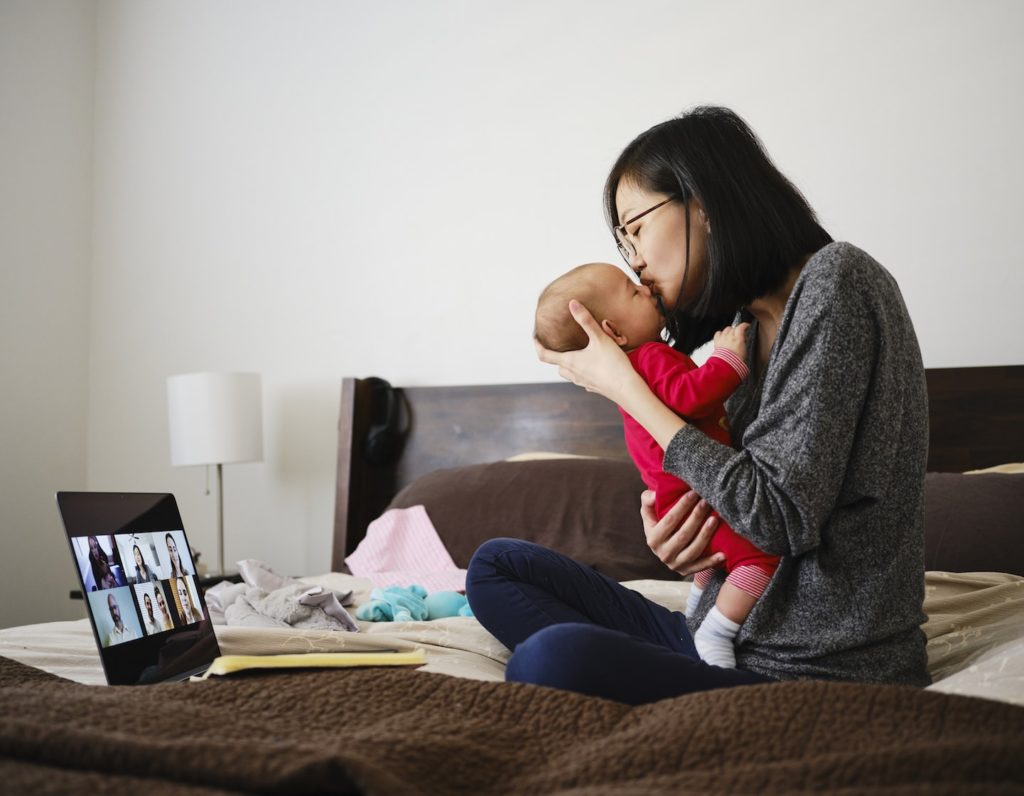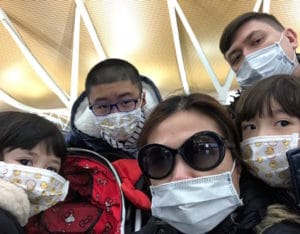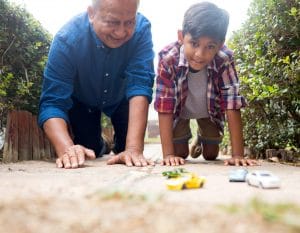
It’s always hard living away from family; Overseas Singaporean mama Vivien Won reflects on the additional challenges posed by COVID and the sadness of missing out on human connection
“Ping!” I awoke some time around 3am to my sister’s message, and as I groped for my phone groggily, made out the sentence: “My water broke! I’m in the OR now, going in for my C sec…”
That was a month ago. Singapore was easing into its “Phase 2” post-Covid-19 lockdown, and my nephew had decided to scupper his carefully pre-planned entry to the world via scheduled Caesarean on my sister’s Expected Date of Delivery. At 9:30 am, local time, my sister became a mother in an extraordinary new world of restrictions on public life. Her husband could not be in the operating theatre, unlike 9 years ago when I delivered my son, also by C-section. The next days and weeks flew by as my sister grappled with all the usual post-natal concerns as I tried my best to “be there” for her on the other side of the world, via video calls and an endless slew of text messages. It didn’t help that my little nephew had been born with a congenital issue and would need long-term treatment and therapy.
I was supposed to be in Singapore for the birth of the second grandson in our family. Our flights had been booked half a year ago, and I would have landed in Singapore, as we have always done at the start of every school holiday here in Germany, just in time to welcome the new addition and support my sister, who had had a difficult pregnancy. But alas, the pandemic had driven countries around the world into lockdown, closing borders and grinding international air travel to a halt. The same happened here as our country’s infection rates spiralled to become the world’s fourth highest at one point. Two weeks before our scheduled departure, the airline notified us that our flight had been cancelled.
And so, I stayed put at home, as millions of others have had to, their travel plans upended as governments around the world shut their borders even to their own foreign residents and imposed strict quarantines on inbound travelers. I didn’t know when I would be able to see my family in Singapore again. These days, as second and third waves of infection besiege cities globally, everything is still up in the air for many expatriates.
Technology in the form of smart phones and video conferencing has been with us for a long time, but Covid-19 highlighted just how pivotal it actually is in a world in which relationships are straining from imposed isolation and long distances. For those of us stranded in our homes away from home, does virtual contact suffice, though? The emotions I felt while sitting out this crisis led me to others in the same predicament.
Samantha – currently living in Abu Dhabi – told me that it isn’t that simple. Her American in-laws are in their 90s and, being isolated in a nursing home in the States, rely only on the phone to stay in contact with her, her husband and their only son. On the other hand, those who are more tech-savvy get to keep in touch with their grandkids abroad, now the only available choice. But what does it mean to be “in touch”, and what has it done to our relationship bonds as we lose physical contact? Everyday interaction, something we used to take for granted, now requires not only smart phone cameras and internet service, but a lot more effort too, as we lose the ability to read subtle non-verbal forms of communication like body language and facial movements. Even my nine-year-old, who has been used to video calls the last seven years, fidgets impatiently at our weekly meetings with his grandparents on WhatsApp.
Then there’s the mental toll of not knowing when we will be reunited with family, in Singapore and abroad. Those with young children, like Elsa in Melbourne, wonder when their parents would get to see their grandchildren again. She and her husband have had to retool and reskill, as the pandemic had decimated the entertainment industry and along with it, their jobs.
Then there are those who have aged and ailing relatives to whom they cannot get at the drop of a hat. Shalyn, who resides with her family in Stuttgart, flew home last year when her father collapsed from a sudden aneurism, requiring major surgery to the brain. He has since made a miraculous recovery, but Shalyn lives in constant anxiety that she might be stranded in Germany if another family crisis were to happen. Maeve, from the Italian state of Genoa, worries about how another lockdown might affect her mother, as more and more people have had to transition to working online and at home, under challenging circumstances.
Multigenerational contact is pretty vital in moderating the stress that can arise from retirees forced to isolate with each other at home, cut off from the welcoming distraction of familial visits. I, too, worried about my (sometimes) cantankerous parents being alone at home with each other. When we left Singapore, not only did they lose their only grandson, but a daily source of mental health relief!
While we used to think very little of the distances between ourselves and our families, because we simply assumed that we would see them again around the holidays, sheltering in place with no way to plan for the near future has also brought many emotions to the fore as I spoke to my friends abroad: anxiety from the general uncertainty, guilt as we watch our families cope without support from us, and anguish at our sense of helplessness as we witness the turmoil of those we care about. The push and pull from the needs of our own nuclear family and the obligations we feel towards our family of origin back home is a constant struggle within many of us.
As I shipped off another care package to Singapore at the post office today, I thought of my little nephew who has yet no inkling of the unpredictable world he is now a part of. Like most humans, I like having a measure of control over my destiny, but when things go a little sideways, it’s also rather human to despair a little and then find a way to cope with life’s permanent uncertainties. While we cannot close the physical gap with our loved ones, we can – with technology and the good old-fashioned postal service – bridge the emotional one.
Read more: Overseas Singaporean Mama Vivien Won on Life in Koblenz, Germany






 View All
View All





 View All
View All








 View All
View All









